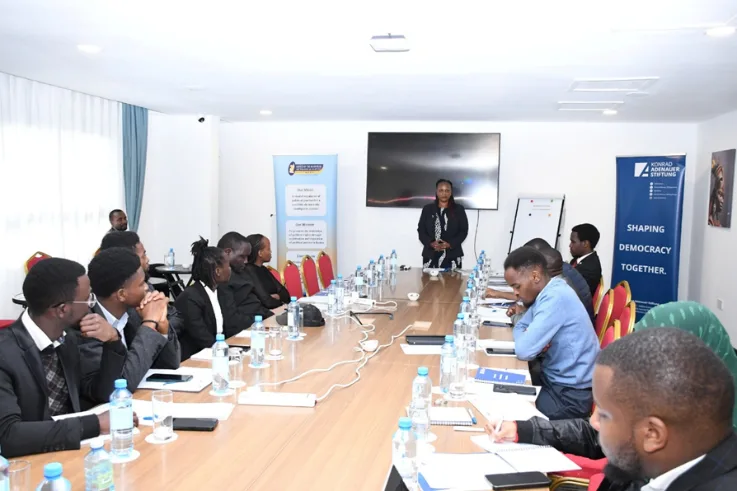
As part of its ongoing commitment to fostering inclusive governance, the Office continues to champion the empowerment of youth in political and leadership spaces. This was evident during a high-level roundtable discussion held on 7th May, in Nairobi, where Registrar of Political Parties, Ann Nderitu, CBS, was among the lead speakers.
The event, hosted by Konrad-Adenauer-Stiftung (KAS), brought together young leaders drawn from universities and political parties, aiming to deepen their understanding and engagement in the political and policy-making processes. The focus was on practical avenues for youth involvement in political parties, leadership structures, and electoral systems.
Speaking during the session, Registrar Ann Nderitu lauded the initiative, emphasizing the importance of youth-driven reforms and active participation.
“I urge young people to utilize political party structures to advocate for reforms that enhance political engagement and democratic accountability,” she said.
She further noted that youth are not merely future leaders but key players in the present democratic landscape.
The Registrar also elaborated on ORPP’s multi-faceted initiatives to promote youth inclusion, which included; Monitoring compliance by political parties in meeting youth representation thresholds as per legal and policy requirements; Ensuring political party structures are youth-responsive and provide opportunities for meaningful involvement; Continuous capacity building and mentorship programs targeting youth leaders within parties; Development of manuals and policy guidelines tailored to support youth-friendly party policies; Encouraging political parties to allocate resources specifically for youth development within their broader programs.
These efforts, she stated, are aimed at equipping young people with the tools and institutional support necessary to navigate and influence political spaces constructively.
Country Director of Konrad Adenauer Stiftung (KAS), Mathias Kamp, reinforced the importance of youth in strengthening democratic governance.
“Youth must be seen not just as participants but as shapers of political thought and champions of responsive leadership,” he remarked.
The interactive forum featured in-depth training on topics such as: Political identity and ideology; Roles and functions of political parties; Strategies to enhance youth participation in politics; The mandate and functions of ORPP.
The ORPP officers from the Partnerships and Linkages, and Registration departments were also present, providing technical insights and engaging directly with participants.
Participants expressing enthusiasm and a renewed sense of purpose to advocate for youth-centered policies within their respective institutions and political parties.
